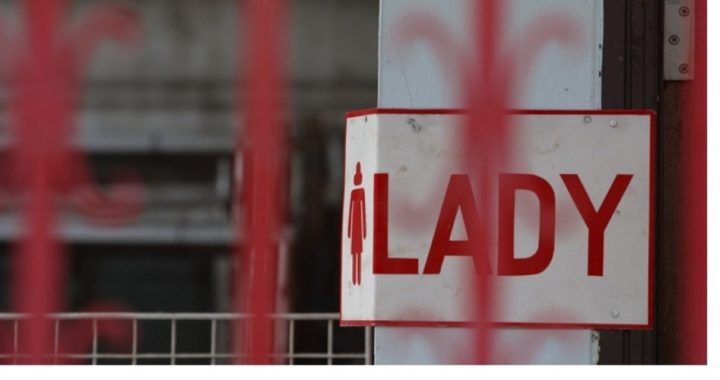
It was not an idea too big to fail. And it failed big. Voters in Houston, Texas, rejected the controversial and misnamed “Houston Equal Rights Ordinance” (HERO) by a wide margin yesterday. The measure would have extended “special protections” to lesbian, gay, bisexual, and so-called transgender people, along with those in other “protected categories,” while leaving Americans outside those groups without such protections.
Yet what really drove opposition to the ordinance was that it would have allowed “transgender” people to use the bathroom of their choice based on actual or perceived “gender identity.” In other words, men claiming to be women could use women’s bathrooms.
So while the vote was expected to be close, HERO turned out to be a zero, failing by a whopping margin of 61 percent to 39 percent. It was the culmination of a long legal and political battle in which passions ran high. As the Houston Chronicle wrote just today:
[The Houston] City Council passed the law 11-6 in May last year, but conservative foes launched an effort to force a repeal referendum that spanned more than one year of legal challenges. In July, the Texas Supreme Court ordered the city to either repeal the law or place in the ballot. By a 12-5 vote, City Council opted for the latter, officially unleashing two dueling campaigns.
And despite the Left’s hurling of the usual accusations of intolerance and bigotry at traditionalists, the specter of bathroom mayhem was just too much for voters. In fact, HERO had initially specified that “no business open to the public could deny a transgender person entry to the restroom consistent with his or her gender identity,” the Houston Chronicle reported last year. And while this language was removed in the face of opposition and in an effort to ease the ordinance’s passage, the paper pointed out that nonetheless, “Transgender people barred access to a restroom still would be able to file a discrimination complaint to the city’s Office of Inspector General.” Moreover, as the Chronicle reported today, during the three months the law was in effect, “Businesses that serve[d] the public, private employers, housing and city contracting” were all subject to it and faced “up to $5,000 in fines for violations.”
Punctuating these facts are not only that the “transgender” movement is relatively new, but also something that even most of its supporters don’t know: “Transgender” is not a legitimate medical diagnosis but an ideologically driven classification. As I explained last November:
“Gender dysphoria” (GD), we’re told, is a condition in which a person’s body doesn’t match his true “gender.” But there is no blood test for it. There is no identifiable genetic marker. There is no medical exam at all. Rather, the diagnosis is made based on, as PsychCentral.com puts it, “strong and persistent cross-gender identification”; in other words, strong and persistent feelings that you actually are a member of the opposite sex.
Yet such a diagnostic standard would constitute malpractice in any other branch of medicine. Could you imagine a patient telling a cardiologist that he has a strong and persistent feeling he has heart disease and the doctor, on that basis alone, performing bypass surgery? The point is that whatever one thinks of the soundness of the “gender dysphoria” diagnosis, the basis on which it’s made certainly is not medically sound.
Note that the word “gender” itself, while viewed by many as synonymous with “sex,” actually refers to a person’s perception of what he is. Also note that the term was almost always applied only to language (i.e., the division of words into masculine, feminine, or neuter) until it was co-opted by sexual revolutionaries.
The larger issue, however, is that of so-called anti-discrimination law itself. First, it is a violation of freedom of association. As I wrote in April:
Consider: No one denies you the right to include in, or exclude from, your home whomever you please. If you want to refuse entry to Catholics, blacks, whites, conservatives, liberals, or coffee drinkers, that’s your prerogative.
So why should you lose that right simply because you decide to erect a few more tables and sell food?
Or cakes or flowers?
Why?
It’s still your property, paid for with your money and created by the sweat of your own brow. Why should your private property rights and freedom of association be abrogated because you decide to engage in commerce?
But then there is also an illusion operative here. That is to say, there’s no such thing as “anti-discrimination law” — in spirit.
It is actually government-discrimination law.
NorthJersey.com points out that as with all government-discrimination law, HERO “would have allowed residents to file a complaint if they felt they had been discriminated against based on protected categories. Religious institutions would have been exempt.” But what if you’re discriminated against based on unprotected categories? And what if you’re a secular institution?
One might wonder why we even have “protected” categories and their corollaries, unprotected categories, in America. One might ponder whether this is actually a violation of the 14th Amendment’s guarantee of equal protection under the law. If the government really wanted to eliminate discrimination, it would make a blanket prohibition against it as opposed to picking winners and losers. But this would be impractical. After all, discrimination is unavoidable; it occurs when choosing the qualified over the unqualified, the industrious over the lazy, and the smart over the dumb. It simply is the process of choosing one or some from among two or more.
The bottom line is that government’s misnamed “anti-discrimination law” doesn’t prevent discrimination; it merely makes Big Brother the arbiter of what type of discrimination is acceptable, transferring this power from those who create wealth to those who create laws and lawsuits. It means that government is discriminating among types of discrimination, using as a guide the day’s prevailing biases and its own political self-interest.



